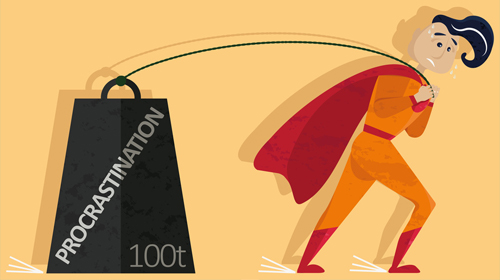Menopause is called ‘the change’ for good reason: there are so many changes going on in a woman’s body as she adjusts to the end of her menstrual cycle. But while the physical changes are generally understandable and expected, what many women aren’t prepared for is the huge impact that menopause can have on mental health and emotional wellbeing. For some women, the psychological effects can be huge and unexpected.
The physical effects of menopause
Menopause is medically defined as the time when a woman has gone 12 consecutive months without having a period, which typically happens around the age of 51 (though this can of course vary). The years leading up to the menopause are called the perimenopause, which is when the ovaries start to reduce their functioning. This causes a drop in levels of oestrogen and progesterone – the hormones which regulate the menstrual cycle. Oestrogen also keeps bones strong, enhances the brain’s feel-good chemicals, and helps maintain body temperature. Progesterone is associated with pre-menstrual symptoms such as bloating, tenderness and mood swings.
The drop in oestrogen and progesterone can lead to hot flushes and night sweats – two commons symptoms of menopause, called vaso-motor symptoms (VMS) – which are said to affect around 70% of women. Other physical changes associated with menopause can include weight gain and slowed metabolism, irregular periods, vaginal dryness, thinning hair and dryer skin, and often mood swings and low energy levels.
The psychological effects of menopause
Many women report no impact at all on their mental health. Some women, however, find themselves experiencing mental health issues – often for the first time in their lives – when approaching menopause. Some of those issues can include the following…
Mood swings
The fluctuating and diminishing levels of oestrogen and progesterone can have a vivid impact on mood. It can sometimes feel like having permanent PMS without the release of a period at the end of it.
Higher stress levels
Your ability to cope with life may feel compromised, as you battle with hot flushes and night sweats – and missing out on eight hours of nourishing sleep. A good night’s sleep is fundamental to our wellbeing, while lack of sleep can make us irritable, frustrated and anxious.
Depression
The gradual reduction in feel-good hormones may have an ongoing effect on your mood. Depressive symptoms can include trouble concentrating and making decisions; feeling low and worthless; no longer enjoying activities you used to love; becoming restless or fidgety; and despairing that you’ll ever get through this. Moods can become increasingly black for no apparent, external reason. If they do, this is when it’s time to get help.
Anxiety
Science says that progesterone links to the brain’s fight-or-flight system, which identifies if there’s a perceived threat in the environment and can bring on increased adrenaline or cortisol to react to and survive that threat. Menopausal women often report that they experience higher levels of anxiety – and sometimes even panic attacks – even when there is no specific threat to trigger them. Anxiety symptoms can include feeling nervous and on edge; worrying too much about a multitude of things; becoming easily annoyed or irritable; and feeling afraid as though something awful might happen.
Memory loss and confusion
Oestrogen is linked to cognitive functioning. Menopausal women sometimes report feeling they’re ‘going mad’ when they experience short-term memory loss and confusion – or may find themselves less articulate than they usually are. Everyday tasks can seem daunting, and you can feel defeated by them – sometimes affecting your self-esteem too.
Fear of death
Some women report death anxiety as part of their menopause symptoms. This may be linked to having parents who are elderly, ill, or dying – a situation that can bring one’s own mortality into sharper focus. Fear of dying can feel paralysing and can restrict the ability to live fully in the present – bringing on an existential crisis around ‘what have I done with my life and what am I supposed to do with what’s left of it’.
Loneliness
Going through menopause can feel baffling, frustrating and isolating. You may feel as though your loved ones don’t understand you – and you daren’t bring any of your issues into the workplace as you fear you could be undermined, ridiculed or sidelined if perceived to be not able to do your job. Menopause can be a lonely place if you’re going through it alone.
Looking after your wellbeing in menopause
‘The change’ can be a pivotal time to start making significant changes in your life. A survey from the Tokyo Institute of Medical Science – which analysed 700 women’s levels of happiness at the ages of 52 and 69 – showed that higher self-esteem, and feeling comfortable in your own skin in your 50s, can stave off dementia in your 70s. Self-esteem may seem last on your list when you’re struggling with night sweats and poor sleep, managing challenges with growing children and ageing parents, wondering why you’re forgetting everyday tasks, and when the only high points of your day are bath and bed. Yet it presents an opportunity to re-evaluate what is working for you – and what is not.
If your symptoms are affecting your life to a debilitating extent, then your GP has to be your first port of call. It is beyond the scope of this blog post, and beyond our remit as psychological therapists, to make suggestions as to what medications or hormone supplements may be relevant for you – if at all. Your GP can advise and support you with the physical and emotional symptoms you’re experiencing, and to suggest ongoing ways to make life through menopause more manageable and tolerable.
Our view is that menopause – above any time of your life – is the moment to put yourself first. Here are some of our suggestions you may want to try for yourself to help you thrive through menopause and beyond.
How to cope
Connect with others in your situation
You may have a bunch of friends going through the same phase of life. You may want to join an online group featuring other women going through menopause. Connect with them, in a way and time that works for you. It can help to identify with others, to know that you’re not the only one going through these changes in your physical and emotional wellbeing. Plus, you may be able to share and gain some tips along the way.
Keep a diary
Note your mood swings, what affects them, and what helps them. That way, you can begin to feel more in charge of your life again.
Cut yourself some slack
Don’t beat yourself up. What you are going through is a normal phase of life. Just as you wouldn’t give your teenager a hard time for grappling with their newly increasing hormones, nor should you give yourself a hard time for your hormonal changes. Aim to reframe the menopause as a natural change you’re going through, and a period that you will clearly and successfully survive.
Speak to people who matter
By this we mean people close to you who may not be aware what you’re going through. Your loved ones. Your friends. Your colleagues and bosses. Your family members. There is still very little awareness of the psychological impact of menopause. The people around you may have no clue why you’re having a meltdown one minute and feeling free as a bird the next. Explain to them what you’re going through and what help or support you might need from them.
Manage your stress
Hormonal changes can run havoc with your stress levels. Prioritise understanding what heightens you and what soothes you. Regular exercise can help. You can try higher-impact activities, such as cycling, tennis, swimming, or working out in the gym if you feel you need to burn off energy. If you’re looking to feel calmer, try lower-impact activities such as Pilates, yoga, walking, meditation or mindfulness. Some people find that gardening, cooking, writing, drawing, painting, dancing, music and singing can also help soothe their stress levels. Crosswords and Sudoku-type exercises are relaxing and can also help boost your cognitive functioning.
Write the next chapter of your life
You’re coming into a new phase of your life. What story do you want to be telling yourself for the next few decades? Are you ready to re-train and start a new career? Will you travel to the places you always said you would? How about overhauling the things that aren’t working for you any more. Write the narrative that brings joy and fulfilment to your life, and then start living it. Because you can.
If you’re going through menopause and need support, or wish to explore ways to boost your psychological health, then get in touch with us to make an appointment with our team of therapists. We have sessions available seven days a week at our Clapham and Tooting centres. Call 020 8673 4545 or email [email protected] to book.







